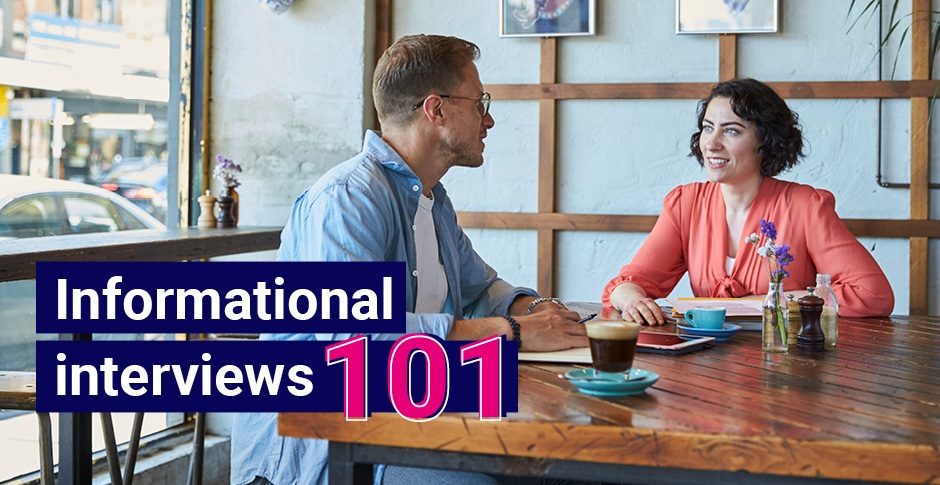The informational interview: what it is and why you should do it
Often the way we get a chance to ask questions about a particular job, field or company is when we sit down for a job interview. But there’s a way you can gain insight into a career and even potentially tap into the job market, minus the pressure of going for a particular role. It’s called an informational interview. Here’s why you might want to do one, and how to make the most of it.
What’s an informational interview?
An informational interview is an informal meeting between a person seeking further information about a particular job, career or industry and a person already established in that field of work.
By conducting an informational interview, you can find out if the company or industry you think you want to work in actually aligns with your values, skills and interests before taking the plunge with a formal application.
Why have an informational interview?
Leah Lambart is a career and interview coach at Relaunch Me and founder of The Career Project, which provides job shadowing opportunities to career changers. She says informational interviews can be particularly useful for students contemplating different career paths or job seekers looking for a career change.
Lambart says one of the main benefits of an informational interview is it provides you with inside information about the role or industry that’s often not easily obtained via internet searches, career fairs or university open days.
“The informational interview also represents a golden opportunity to develop a network in your area of interest that you may be able to reach out to in the future or when you’re looking for a job down the track,” she says.
How to organise an informational interview
The first step is to find people willing to meet with you for an informational interview. The best place to start is in your own network, including colleagues or ex-colleagues, friends, family, and acquaintances. “Try asking people you know if they know anyone working in industries or organisations you are curious about and whether they can introduce you,” Lambart says.
Another way to find potential contacts for an informational interview is by attending industry events, seminars and meet-ups or reaching out to people through networking sites.
When it comes to requesting an informational interview, be upfront and explain exactly what information you’re hoping to obtain, Lambart says. “Make sure you state clearly what you’re expecting of the person and how much of their time you’ll need,” she says.
Once you’ve secured an informational interview
Lambart says although the informational interview is not a formal job interview, it may lead to future opportunities so it’s wise to act professionally and prepare adequately by making a list of questions about the field, role, or company.
She says the questions should aim to gain insight into what the role involves and whether it would be a good fit for you, and could include:
- Can you tell me what an average day/week in your job is like?
- What do you like most / least about what you do?
- What skills and personality traits do you think are most important to being successful in this field?
- Were there any surprises for you when you started working in this field?
- What advice would you give to someone considering a career in this field?
When you’re at the interview
Although the focus should be on you asking questions so you can find out as much as you can about the company or role you’re interested in, it’s also a good idea to come prepared to talk about yourself and your ambitions. Make sure you have your 30-second elevator pitch ready so you can give the best impression of yourself, your skills, experience and interests.
It’s also worth asking if there is anyone else you could talk to about the company or industry. Having a mutual connection will greatly enhance the likelihood of that person agreeing to meet with you, Lambart says.
After the informational interview
It’s always a good idea to send an email or note after the interview to thank the person for their time and insights. “It shows that you appreciate them taking the time to meet with you and will emphasize your interest in working for their company in the future,” Lambart says.
Informational interviews are a great way to extend your job search beyond simply responding to ads on job boards. They are also a great way to expand your professional network. Coming prepared, asking the right questions, and making sure you follow up after the interview will all help you to plot out the next step in your career journey.
